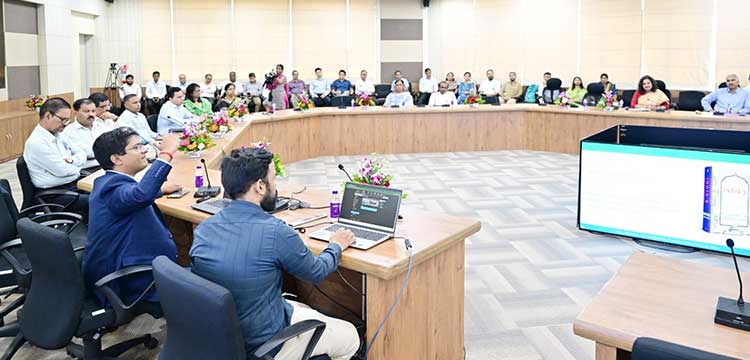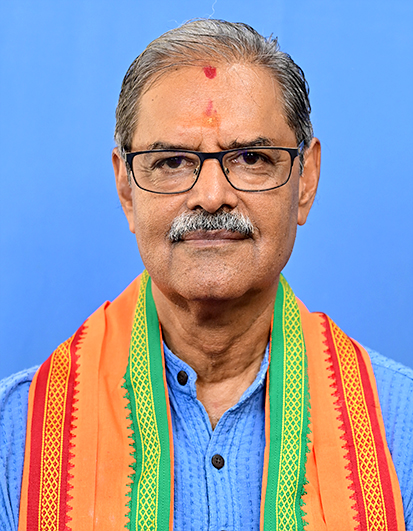Karthik Muralidharan Shares Data-Driven Roadmap for Odisha’s Development

Renowned economist urges stronger state capacity, decentralization, and efficient welfare execution to unlock India’s full growth potential
Bhubaneswar – Globally acclaimed economist and author Karthik Muralidharan, known for his expertise in education, public administration, and evidence-based policymaking, presented his latest research findings in Odisha during an interactive session at the Kharavela Bhawan conference hall on Wednesday.
The event, part of his official state visit, drew upon themes from his new book, Accelerating India’s Development: A State-Led Roadmap for Effective Governance. It brought together senior state officials, including Chief Secretary Manoj Ahuja, Development Commissioner and Additional Chief Secretary Anu Garg, along with departmental heads. District collectors and revenue commissioners from across Odisha joined the discussion virtually.
Focus on State-Led Governance
Muralidharan’s presentation centered on governance strategies aimed at bridging persistent service delivery gaps in India. While acknowledging the country’s strong economic fundamentals—intellectual capital, macroeconomic stability, demographic advantage, democratic institutions, and diaspora contributions—he cautioned that the full potential remains untapped.
He identified persistent shortcomings in areas such as education, healthcare, public safety, justice delivery, welfare systems, and access to quality employment. According to him, overcoming these challenges demands a five-pronged approach:
1. Strengthening state capacity to improve policy implementation at the grassroots.
2. Enhancing human resource management to ensure motivated and well-trained public servants.
3. Decentralizing public spending to empower local administrations with greater decision-making authority.
4. Balancing the role of the state and the market for sustainable development.
5. Ensuring consistent execution of welfare schemes to prevent policy slippage.
Odisha in Focus
Drawing comparisons between Odisha and other Indian states, Muralidharan offered data-backed recommendations tailored to the region’s governance challenges. His analysis underscored that while Odisha has made commendable progress in social and economic indicators, targeted reforms in administrative efficiency and service delivery could accelerate growth further.
The economist stressed that states like Odisha have a pivotal role in shaping India’s development story, noting that “effective governance at the state level is the fastest route to transforming lives at scale.”
Engagement with Policymakers
Following the presentation, Chief Secretary Manoj Ahuja praised Muralidharan’s insights, calling them “highly relevant to Odisha’s current development trajectory.” He emphasized the importance of translating such policy-oriented discussions into actionable reforms.
In a series of follow-up interactions, departmental secretaries held separate consultations with Muralidharan to address sector-specific challenges. These sessions focused on actionable strategies for improving education quality, enhancing healthcare delivery, streamlining welfare benefits, and boosting rural development.
We he Broader Vision
Muralidharan’s visit to Odisha reflects a growing trend of evidence-driven policymaking, where states actively seek academic expertise to refine governance models. His framework emphasizes that state governments—rather than the central government alone—must drive the next wave of reforms if India is to sustain high growth and improve living standards for all citizens.
By fostering better coordination between policy formulation and implementation, and by aligning resources with on-ground realities, he believes India can bridge long-standing service gaps and deliver inclusive prosperity.
As Odisha continues to invest in infrastructure, human capital, and administrative reforms, Wednesday’s dialogue marked a step toward blending global research insights with local governance priorities, setting the stage for more collaborative approaches to state-led development in the years ahead.








